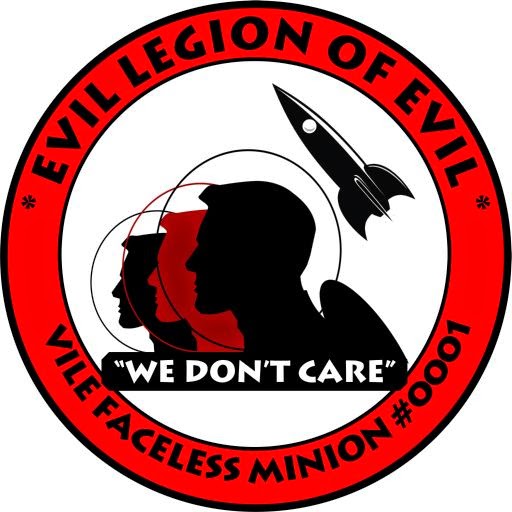Another nominee withdrew even as the Hugo ballot was going online, rousing an immediate swirl of comment by Marina J. Lostetter, Alex Shvartsman and Deirdre Saoirse Moen.
Before that news cycle opened there were already new posts from Larry Correia, John C. Wright, Liz Barr, Dave Freer, Sarah Hoyt, Sam Roberts, Lyda Morehouse, R. Scott Bakker, George R.R. Martin, Jason Sanford and many more. (Title credit goes to File 770’s consulting editor of the day Bruce Baugh.)
Edmund R. Schubert on AletheaKontis.com
“In Which Edmund Schubert Withdraws From the Hugos” – April 27
And let me be clear about this: While I strongly disagree with the way Sad Puppies went about it… when the Puppies say they feel shut out because of their politics, it’s hard for me to not empathize because I’ve seen IGMS’s authors chastised for selling their story to us, simply because of people’s perceptions about the publisher’s personal views. I’ve also seen people refuse to read any of the stories published in IGMS for the same reason.
With regard to that, I want to repeat something I’ve said previously: while Orson Scott Card and I disagree on several social and political subjects, we respect each other and don’t let it get in the way of IGMS’s true goal: supporting writers and artists of all backgrounds and preferences. The truth is that Card is neither devil nor saint; he’s just a man who wants to support writers and artists—and he doesn’t let anything stand in the way of that.
As editor of IGMS, I can, and have, and will continue to be—with the full support of publisher Orson Scott Card—open to publishing stories by and about gay authors and gay characters, stories by and about female authors and female characters, stories by authors and about characters of any and every racial, political, or religious affiliation—as long as I feel like those authors 1) have a story to tell, not a point to score, and 2) tell that story well. And you know what? Orson is happy to have me do so. Because the raison d’etre of IGMS is to support writers and artists. Period.
Edmund R. Schubert at Orson Scott Card Intergalactice Medicine Show
“Not A Hugo Sampler Issue – Letter From The Editor, 2015”
To Readers of Science Fiction and Fantasy Everywhere,
I suspect that most of you already know this, but for those few who may have stumbled upon this collection of short stories and novelettes by other paths, let me start off with a summation (along with the caveat that this will be highly simplistic for the sake of brevity): in early 2015 a campaign was launched by a group of science fiction and fantasy fans who felt their views and tastes were being marginalized. They wanted to force the rest of fandom to recognize them, and their plan for doing so was to put a slate of nominees they considered worthy-but-overlooked on the final ballot for the prestigious Hugo Award. Their actions were successful in the extreme, and the reaction by much of fandom was equally extreme. Things got ugly. Quickly. Very. (Editor’s tip #463: Forcing people to see your point of view is rarely successful . . .)
I was one of the people nominated for a Hugo Award during in this campaign, although I didn’t know anything about it until after it had already happened. And while I feel these fans had certain valid concerns, hijacking the Hugo Awards wasn’t the right way to go about making them. I therefore withdrew my name from consideration.
Marina J. Lostetter on A Little Lost
“The #HugoAwards are Supposed to be Fun, Damn It!” – April 27
I was ready to never say anything about the Hugos here. But I love IGMS and the specific story of mine Edmund requested, and am greatly saddened by what has happened around the Hugos this year. I think it’s important to note how this year’s slates have fostered nothing but ill feelings, and that many fine authors, editors, and venues are caught in the middle: either because they’ve become a “ping-pong ball” as Edmund describes below, or because they were bumped from the list due to questionable bloc voting.
Alex Shvartsman on Alex Schvartsman’s Speculative Fiction
“Edmund Schubert Withdraws From The Hugo Award Consideration” – April 27
I, for one, am sad about Edmund’s decision. He was on my nominating ballot (and I had no association nor even knowledge of what was on the Puppy slates). I know of at least several other fans who nominated him as well. I hope to see him back on a future ballot sooner, rather than later.
Deirdre Saoirse Moen on Sounds Like Weird
“Editor Edmund R. Schubert Withdraws From the Hugo Awards” – April 27
I think it’s important to note these things:
- It’s likely Edmund knew about the slates prior to nominations closing.
- Edmund accepted the nomination (people are given the ability to decline prior to the official nominee list being posted).
- Edmund likely knew others withdrew after acceptance. Edmund chose not to at that point.
- Edmund likely knew the ballot had been locked after two people were declared ineligible and two withdrew.
- Like Black Gate, Edmund’s withdrawal took place after all these events.
While that allows for some sympathy/empathy, it’s not as large as someone declining the nomination in the first place or, as Dave Creek did, asking off the slate prior to nominations closing.
Liz Barr on No Award
“Liz reads the 2015 Hugo-nominated short stories – April 27
I thought that Project: Read As Much As Possible And Vote By Merit would be easier if I didn’t sit around waiting for the voter pack. Accordingly, I’ve reserved a bunch of the nominated novels at my elibrary of preference. As for short stories, all but one are available online, and I’ve started reading and organising my preferences.
Larry Correia on Monster Hunter Nation
“Updates for the Week” – April 27
Sad Puppies Round Up
Same old, same old. Bunch of new anti-Puppies articles and blogs this week. I could either A. Write books and be paid large sums of money. or B. Repeat myself over and over to every dipshit on Twitter… Hmmm… Tough one.
From what I’ve seen the people who disagree with us now mostly fall into a couple of camps. 1. People repeating the already discredited anti-diversity slate narrative and other lies. BORING. 2. People who agree the Hugos were screwed up, but who didn’t see any political bias. Insular, cliquish, wannabe-literati, yes, but not political. Great. You guys run with that. 3. People who benefit from the status quo dismissing a bunch of fans because of guilt by association. Weak.
John C. Wright
“And now the French” – April 27
The overseas bloggers are getting into the act:
https://francoisvanhille.wordpress.com/2015/04/26/cultures-de-limaginaire-litterature-puppygate-la-polemique-dechire-ecrivains-et-fans-de-science-fiction-aux-etats-unis/
And, no, no one contacted me to discover what the other side of the story was, or even whether there was one.
Dave Freer on Mad Genius Club
“To Destroy/survive SaurVox/ Voxdemort/ the Evil Genius in his Volcano Lair” – April 27
So: here you go. To defeat Vox Day… you need to become him – or at least a rival in power able to do so. Which means you need to understand that power, what attracts followers to him, and how instead to attract them to yourselves. To survive him, you at least need to understand him and those who oppose you.
Of course the problem with becoming that possible rival, that Saruman or Galadriel, is that firstly he is bright, secondly he seems to understand you. Thirdly, he is a long term planner and strategist, he writes well and is able to appeal to a large audience. He plans but seems able to flex from those plans. Of course he is obsessive and has ideas that don’t run in concordance with the ones you profess to follow. But those last features, which are all you ever focus on, are not conflict relevant, really. GRRM had a try at the wise councilor/Saruman bit, but he was not a great success. Scalzi… I wasn’t sure if he was trying Wormtongue to Larry, but as a Saruman he came over as petty and not too bright with his little twitter giggles of girlish schadenfreude glee at last year’s Hugos, just to name one of his outbursts… Anyway, let’s face it, he’s not your long-term thinker, otherwise he would have avoided attacking Baen last year. He’s a schemer and good at spin and vastly over-blowing his importance, but really, as a leader to mass a dark horde of men and Southern Orcs under, well, they’ll ruin his lawn. As for David Gerrold – I’m not sure if the purple dress is a Galadriel thing, really. (I think that’s supposed to offend us. Talk about really, really not understanding the people he hates. We don’t care, David. You could get the janitor to be the Hugo MC, in a burka, and we still wouldn’t care.) I’d avoid purple. In a purple dress people could end up thinking he was doing Barney imitations, not Galadriel. I like to try and understand my opponents and get a handle on their motives. I must admit I was puzzled by his rage and sheer throw-the-toys-of-the-cot petulance about all this, let alone the fact that he was bringing the unfortunate Con and its volunteers into disrepute by openly attacking and villifying some of the nominees and thus trying to affect the Hugo outcome. Most of us had nothing against (or for) the fellow. And an MC… he’s just there to hand out the prizes. It’s not about him. All he had to do was smile and wave, no-one expects the MC to much more, and certainly they must keep a distance and appearance of lofty decorum from the actual process. Then, while packing wallaby mince I had a Eureka moment. Fortunately, I was better dressed than Archimedes for this process, so I merely ran through the house dripping bits of raw meat (isn’t that better?) and yelling ‘eureka’ at the cats. It’s true, at times they do. Anyway, I decided that this was a little inverse gay wedding cake and the Christian baker. It’s a ritual he values and considers important into which the particularly chosen of his sect were initiated with great pomp and celebration, being defiled by vile unbelievers – and he was going to have to conduct the ceremony. Well now. I wonder what advice he would have given that baker?
Sarah A. Hoyt on According To Hoyt
“Requires Abasement” – April 26
This has been happening all month, for those keeping score at home. The indoctrinated drones of the establishment have been spinning by here in high dudgeon and sure they have a killing argument and telling us both that we want “pulpy stuff like Heinlein” and that Heinlein was often “preachy. And messagy.”
Sam Roberts on Reaxxion
“Are Social Justice Warriors Trying To Rig The Hugo Awards?” – April 27
While there have been allegations of authors buying voting rights for their friends and family in the past, Kowal appears to be the first person to do so openly. While not strictly forbidden by the WorldCon rules, as Tor editor Patrick Nielsen Hayden (probably the foremost opponent of the Puppies) has said, “As anyone over the age of ten knows, it’s generally possible to do things that are dubious, or scummy, or even downright evil, without violating any laws or rules.” While he was speaking against the Puppies at the time, his comment certainly seems applicable here.
As I write this, Kowal has raised enough money via anonymous donations, many of which she says come from authors who are running against the Puppies’ slate themselves (and thus stand to gain if the Puppies are defeated), to purchase one hundred votes. While this may seem a small amount, last year’s Hugos only saw around 3000 votes cast total. If the race is close this year, these one hundred (3.3% of the total) could easily sway the voting.
Badtux on Badtux the Snarky Penguin
“My thoughts on the #SadPuppies” – April 26
So it appears the “Sad Puppies” may win the battle, and lose the war. It may be that science fiction only has one prestige award in the future — the Nebula Award. SFWA membership requirements make it impossible for the “Sad Puppies” or anybody else to rig Nebula awards. In the end, what makes libraries (who account for most publisher profits) buy Hugo Award winners is the notion that winning a Hugo Award means it’s popular and high quality. Once it’s demonstrated that winning a Hugo Award means only that the publisher spent more money to rig the election this year than other publishers did, the Hugo becomes meaningless to libraries — and to anybody else, for that matter.
R. Scott Bakker on Three Pound Brain
“Hugos Weaving” – April 27
Let’s suppose, just for instance, that so-called literary works no longer reach dissenting audiences, and so only serve to reinforce the values of readers…
That precious few of us are being challenged anymore—at least not by writing.
The communicative habitat of the human being is changing more radically than at any time in history, period. The old modes of literary dissemination are dead or dying, and with them all the simplistic assumptions of our literary past. If writing that matters is writing that challenges, the writing that matters most has to be writing that avoids the ‘preference funnel,’ writing that falls into the hands of those who can be outraged. The only writing that matters, in other words, is writing that manages to span significant ingroup boundaries.
If this is the case, then Beale has merely shown us that science fiction and fantasy actually matter, that as a writer, your voice can still reach people who can (and likely will) be offended… as well as swayed, unsettled, or any of the things Humanities clowns claim writing should do.
Think about it. Why bother writing stories with progressive values for progressives only, that is, unless moral entertainment is largely what you’re interested in? You gotta admit, this is pretty much the sum of what passes for ‘literary’ nowadays.
Everyone’s crooked is someone else’s straight—that’s the dilemma. Since all moral interpretations are fundamentally underdetermined, there is no rational or evidential means to compel moral consensus. Pretty much anything can be argued when it comes to questions or value. There will always be Beales and Sriduangkaews, individuals adept at rationalizing our bigotries—always. And guess what? the internet has made them as accessible as fucking Wal-Mart. This is what makes engaging them so important. Of course Beale needs to be exposed—but not for the benefit of people who already despise his values. Such ‘exposure’ amounts to nothing more than clapping one another on the back. He needs to be exposed in the eyes of his own constituents, actual or potential. The fact that the paths leading to bigotry run downhill makes the project of building stairs all the more crucial.
‘Legitimacy,’ Sandifer says. Legitimacy for whom? For the likeminded—who else? But that, my well-educated friend, is the sound-proofed legitimacy of the Booker, or the National Book Awards—which is to say, the legitimacy of the irrelevant, the socially inert. The last thing this accelerating world needs is more ingroup ejaculate. The fact that Beale managed to pull this little coup is proof positive that science fiction and fantasy matter, that we dwell in a rare corner of culture where the battle of ideas is for… fucking… real.
And you feel ashamed.
Lyda Morehouse on A Day in the Life of an Idiot
“Hugo on the Brain and the Nature of Fandom” – April 27
Look, we’re all divas. Correia is just saying out loud what lot of us feel: boo hoo, it’s NOT all about me! (Pro tip: most of us don’t say it out loud, because we realize how whiny and self-centered it makes us look.)
BUT… yes, okay? I actually sympathize a little with this. To say there aren’t cool kid cliques is disingenuous too. There just are.
Also, this feeling of being shut out of WorldCON culture something that has happened to people on the left, too. Not that long ago (but apparently outside of the collective memory), there was a huge controversy around the London WorldCON about a cliquish inner circle of white guys (and GRRM is even pictured!)
Here’s the thing I want to say about this: con culture is a thing. It’s a thing everyone needs to learn how to negotiate.
I’ve even talked about this idea before on this blog because I came across someone on Twitter complaining about feeling left out/unwelcomed at a con. The thing I said to that person (who was decidedly on the left), is that we’re all responsible for our own con experience. It’s not the con’s job to make you feel welcome. You have to learn the culture of cons and figure out how to fit in. Some conventions even have panels on the opening days ABOUT how to make inroads and make friends and be involved in a way that will let you leave the con feeling like you were part of it in a positive way.
Marion on Deeds & Words
“The Hugos, 2015, Chapter Two: The Slate Mailer Saga” – April 27
For many fans in the US, $40 is an expenditure that requires some thought. Spending $40 out of the household budget just to have a say about Best Book of the Year may be frivolous. It may reduce funds available for sports, a field trip or some other enrichment for your children. It’s not a slam-dunk.
And for many other fans, still in the US, it is out of reach. It isn’t a question of diverting the monthly Family Movie Day budget for one month. It is not even a discussion. Many of these people read, review and write SF; they blog, and some of them teach at the college level. They are shut out of the “democratic” Hugo selection process by economics.
Now let’s consider fans in Indonesia, Namibia, Lithuania. Can most of them afford $40 US?
If everyone who wanted to vote had voted, the Rabid Puppy slate might not have found such traction, even if they had a newly-recruited voting bloc. If the cost of a supporting membership were $6, I wonder what would have happened. Just generally, beyond this year and next,I wonder what would happen. Would we start seeing SF best-sellers from Kenya and Estonia on the short list? Would we start getting more works in translation? In other words, would more nominators and voters introduce us to more good books (which, after all, is ultimately the purpose)?
Jason Sanford
“Are the Puppies all bark and no bite?” – April 27
If this is a correct analysis, it suggests there’s a massive group of people interested in the SF/F genre and the Hugos who didn’t know about the Puppy campaigns beforehand.
I also find the traffic comparison between Nielsenhayden.com and Voxday.blogspot.com rather interesting. Over the last month both sites featured multiple posts with prominent links to my essays, yet one of them clearly sent more traffic my way. While people can draw their own conclusions from this, it makes me wonder if the reach of the Rabid Puppies ringleader has been overstated by everyone in the genre.
Yes, VD has a passionate group of followers who helped the Rabid Puppy slate become the true winners of this Hugo mess. But perhaps the actual number of his followers is rather small, at least when compared to other groups within the SF/F genre.
That doesn’t mean he and his followers can’t continue to game the Hugos — the award’s nomination process, as recent events have proved, are very easily dominated by small, organized voting blocks.
But if my take on these numbers is correct, then it appears the Puppies are mostly all bark and no bite.
George R.R. Martin on Not A Blog
“Puppy Whines” – April 27
It all boggles the mind. And of course it leads to surreal arguments that ‘their side’ is justified in calling our side “Social Justice Whores” and the like because our side has called their side “Wrongfans” and “Haters” — when, of course, we haven’t. You are calling YOURSELVES that… with sarcasm, sure, but still, you are the guys coining all these new and exciting insults, for both my side and your own.
Let me ask, once again, for civility. When the argument is about political issues, I will call your side “conservatives” and “right wingers,” and I’d ask you to call us “liberals” or “progressives” or even “left wingers,” not SJ-Whatevers. When we are focused more on worldcon or the Hugos, I will continue to call you “Sad Puppies,” and I will take care to differentiate you from the Rabid Puppies… except in cases where you’re acting in alliance and agree, where I will just say “Puppies.” And you can call my side “fandom” or “worldcon fandom” or “trufans.” The two sides use “fan” to mean very different things, as I have pointed out repeatedly, which causes some of the confusion. Here’s a new thought: if you insist on calling yourselves “fans,” then call us “fen,” the ancient, hoary, fannish plural of fan. Fans and fen, there we go, two terms for two sides, no insults. Is that so bloody hard?
Joe Sherry on Adventures in Reading
“Thoughts on the Hugo Awrds: Part Four” – April 27
What I’d like to play with is Flint’s suggestions for “Complete Multi-Volume Novels” and “Series”. What I see Flint saying is that the skill required to write a complete series and stick the landing is different enough from writing an ongoing series that they shouldn’t be compared in the same way (Sanderson’s Mistborn trilogy compared to Jim Butcher’s ongoing Dresden Files). I don’t completely agree.
That’s not completely true. I agree with what Flint is saying about the skill and technique, I disagree with how he is viewing the categories. I would divide the categories like this:
Novel
Ongoing Series
Completed Series
So Joe, you ask, what the heck are these categories and how are they different than what Eric Flint suggested? Great question, I reply, let me tell you!
Novel: This category only slightly changes from how it works today. It is for a single volume work of no less than 40,000 words. The change is that I would strike section 3.2.6 from the WSFS Constitution “a work appearing in a number of parts shall be eligible for the year of the final part”. 2013’s publication of A Memory of Light is how The Wheel of Time was nominated at the 2014 Hugos for Best Novel. I’d strike this. Novel is for a single volume, period. That’s it. A Memory of Light is eligible for Novel, The Wheel of Time is not.
Ongoing Series: This is where I start to mess with Flint’s suggestion. Ongoing Series is for ANY series that has not yet been completed. To be eligible for Ongoing Series, a series must have at least two volumes published. However, it does not matter for the terms of this category if the author is planning to write a trilogy with a definite ending (Mistborn) or is writing a potentially open ended series (Dresden Files, Discworld). To be further eligible for a nomination, a new volume must be published during the eligibility year. Love A Song of Ice and Fire but George Martin hasn’t published The Winds of Winter yet? The series is not eligible for Ongoing Series at the 2016 Hugos unless he gets that book out during calendar year 2015.
Further, because we need to close one potential loophole here, an Ongoing Series is eligible for nomination ONCE. What I intend this to mean is that if Mr. Martin publishes The Winds of Winter in 2015, it is eligible for Ongoing Series. If A Song of Ice and Fire makes the final ballot for Ongoing Series, it is no longer eligible to be nominated in a subsequent year. However, if A Song of Ice and Fire fails to make the final ballot, it will still be eligible for Ongoing Series provided a new volume is published. A series is considering “Ongoing” until the author or the publisher states that a volume is the “final” or “concluding” volume in that series.
Completed Series: A series is eligible as Completed Series when the announced final volume in the series is published. A series will not both be eligible for Ongoing and Completed Series in the same year. Publication of A Memory of Light rendered The Wheel of Time ineligible for Ongoing Series, but eligible for Completed Series. Something like The Dresden Files would not be eligible for completed series until Jim Butcher announces “this is the final Harry Dresden novel”. If Butcher published a Harry Dresden novel but then two years later said, “oh year, Skin Game was really the last book in the series, sorry guys” The Dresden Files will not be eligible for Completed Series because the series is only eligible in the year the final volume is published. I don’t see this as too big of an issue because most writers want folks to know that they are delivering the promised conclusion to a series.
Declan Finn on A Pius Man
“Sad Puppies Bite Back” – April 27
Anyway, back in January, I tripped over a funny piece by Vox Day — presumably before Vox declared “Burn this bitch down!” about the Hugos — which basically boiled down to “The monthly staff meeting of the Evil League of Evil” (in the Lair of the Puppies).
For some reason, ever since I did heard about the death threats on the Puppies, and I wondered when Larry Correia or Brad would be SWATted, all I could think of was, well, what would happen?
…But just imagine….
Sarah Hoyt, Evil Yet Beautiful Space Princess
[SWAT leader at the door of the secret base hidden in hollowed out volcano] Battering ram in 5, 4, 3, 2 — HIT IT!
[Battering ram takes door. SWAT rushes in. Sarah Hoyt, Evil Yet Beautiful Space Princess, is in the living room, playing with unidentifiable — yet obviously sinister — Weapons From Outer Space, using her Schwartz ring. In the background, innocent and cringing minions are flogged with electric whips, and sent screaming to the Agony Vat ]
[SH looks up] HOW DARE YOU ENTER MY DOMAIN!!!!
[SWAT leader] Put down the ring!
[SH turns into CGI Imposing Figure] Do you know who you are messing with? NOT A DARK LORD BUT A QUEEN! NOT DARK BY BEAUTIFUL AND TERRIBLE AS THE MORN! TREACHEROUS AS THE SEAS! STRONGER THAN THE FOUNDATIONS OF THE EARTH! ALL SHALL LOVE ME AND DESPAIR!
[SWAT all stops, open-mouthed. They huddle. After a minute, they turn back to her] Love you and despair. Okay. We’re cool with that. You have a deal.
[SH pouts, turns off CGI effects] Oh, darn! I didn’t even get to use “She Who Must Be Obeyed.” I love that line. Sigh. Okay. Hon! We have more minions! Put them with the others, please!
[Mr. Hoyt, Evil Yet Handsome Space Prince] Yes dear. Okay guys, come with me. We’ll train you in the use of the laser guns and get you fit for Stormtrooper armor.










